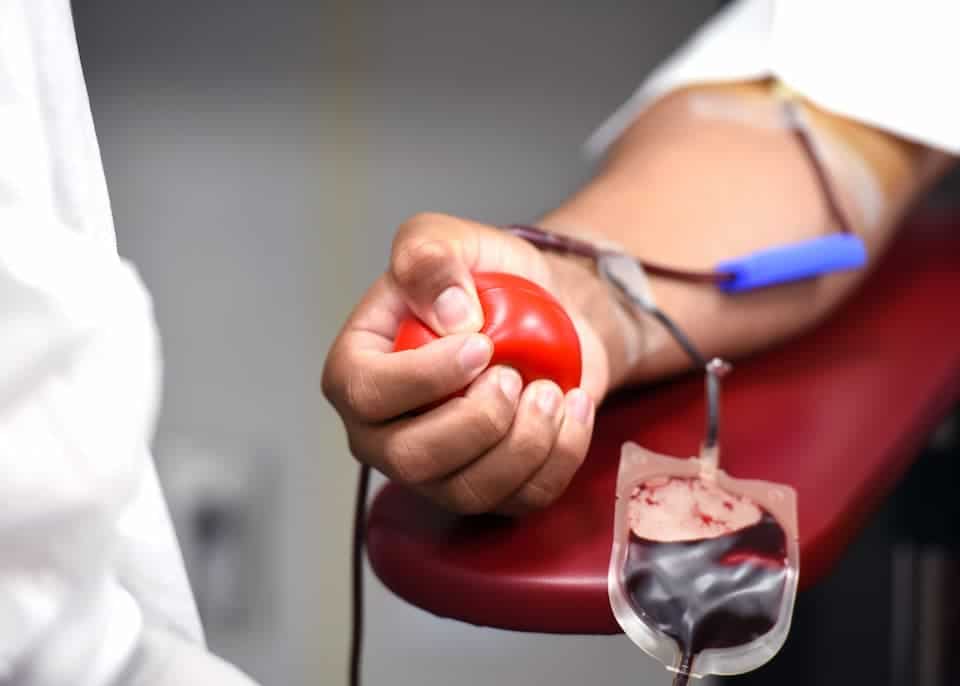June 14 is world blood donor’s day. Nothing can be more apt than tackling some myths associated with blood donation on this day.
Busting Some Myths About Blood Donations
Looking at the global picture, more than 100 million units of blood are donated every year by people.
In the United States alone there are more than 13.2 million blood donors.

How does blood donation impact a single life:
Donated blood can only be stored for a very short time, so routine blood donation should be encouraged to make sure there is an adequate supply of blood for all groups at all times.
As explained by the World Health Organization (WHO), when a person decides to donate blood, he is actually saving a life, or more if the blood can be separated into its components like the red cells, platelets, and plasma.
Such individual components of the blood can be used to save the life of multiple people depending on their requirements.
The vital benefits of blood donation for society are outlined by Dr. James F. Kenny, the associate chair of the Department of Emergency Medicine at Staten Island University Hospital, New York.
Dr. Kenny states that transfusion of blood products is urgently needed by patients who are under some kind of trauma, undergoing surgery or chemotherapy, or in need of a bone marrow transplant. They can survive if they receive blood on time, else their survival becomes a stake.
Looking at the statistics of the US, one blood product transfusion happens every 2 seconds, which makes it 21 million blood component transfusion in a year.
Busting some common myths:
There is a popular belief that blood donation can make a person sick. Although the recommendations from the doctors are to take a rest for a day and drink plenty of fluid, blood donation never adversely affects the health of a person.
48 hours after blood donation, the person’s blood volume usually returns to normal, and within a time period of 4-8 weeks, the body replaces all of the blood cells lost by donation.
The popular myth that older people cannot donate blood is not true. It is absolutely safe for individuals between 17-66 years of age to donate blood if their health is in good condition otherwise.
Moreover, for individuals above 70 years of age, if they have a history of blood donation, they can also safely donate blood.
Medication does not stop one from donating blood:
The correlation between medication and blood donation is covered in partial myth, there is a certain medication that is not considered safe for blood donation like anticoagulants, antiplatelet medications, and medicines for acne treatment.
However in most cases taking medication does not mean that a person cannot donate blood, yet consultation with a medical expert is advised before donating blood.
Moreover, the misinformation that blood donation can take a lot of time is not true, although the registration process for blood donation can take some time the actual process of the donation does not take more than 10 minutes.
Blood transfusion does not cause infection;
The popular belief that one can contract an infection by donating blood is true.
In present medical science, sterile techniques are used to clean and prepare the arm for the process, and only new, sterile needles are used for drawing blood that is discarded after a single-use.
Receiving blood also does not cause any infection in a person, infections can occur if the blood is carrying any infection within it, otherwise, the process itself does not cause any infection in the receiver of the blood transfusion.
There are not enough people donating blood:
Blood does not have a very long shelf life, so maintaining an adequate supply of blood for all the groups is a persistent challenge that medical professionals face.
A constant supply of eligible blood donors is important to maintain the reserve and meet the patients they need as and when needed.
With over 15 years as a practicing journalist, Nikki Attkisson found herself at Powdersville Post now after working at several other publications. She is an award-winning journalist with an entrepreneurial spirit and worked as a journalist covering technology, innovation, environmental issues, politics, health etc. Nikki Attkisson has also worked on product development, content strategy, and editorial management for numerous media companies. She began her career at local news stations and worked as a reporter in national newspapers.
